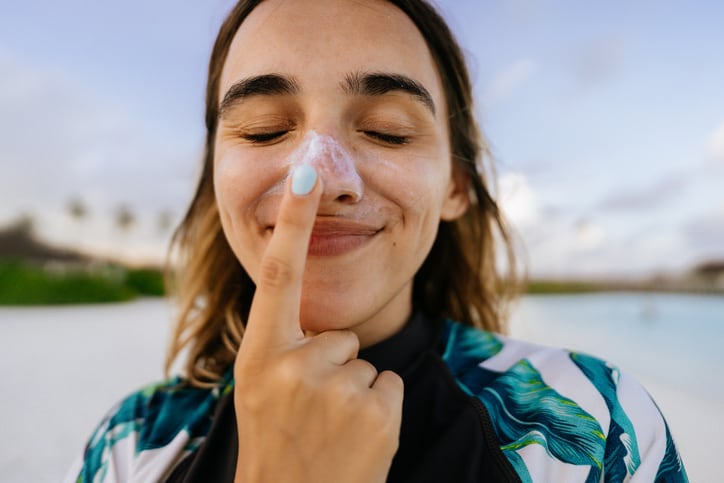A board-certified dermatologist, dermatologic surgeon and academic medical clinician, Dr. Cohen founded biotech firm CoLabs with her daughter in 2008 and developed the patented QuantaSphere technology to provide controlled delivery of topical cosmetics and drugs.
“The market, both consumer and regulatory elements, recognize the importance of targeted delivery and reduced absorption of chemicals into the body. Our technology addresses these important concerns,” Cohen said, adding that CoLabs believes it will become industry standard.
Proof of concept
CoLabs put QuantaSphere, based on 20 years of research, to work with the development of its first consumer brand and the launch of a SPF 50 lotion that it describes as a “quantum leap in sunscreen protection”.
“Our proof-of-concept product sold under the KLĒNSKIN brand clearly shows the intent of our scientific approach,” Cohen said. “We have gotten high SPF ratings with reduced actives, limited absorption and found the product line to be consumer friendly.”
Active ingredients are wrapped in microscopic beads with UV blocking and scattering filters. Unlike traditional sunscreens that promote absorption, these are designed to create a protective barrier that remains on the skin.
CoLabs has since added wash-on sunscreens, lip balms, SPF sticks, hand sanitizers and insect repellents to the brand and plans to adapt the technology to veterinary, herbicide, pesticide, fragrance, soap, medical and consumer markets.
Encapsulate size matters
To enhance stability and target delivery, the technology packages a reduced number of ingredients into a microencapsulate about the size of a skin cell, which has been found to reduce absorption by as much as 80 percent.
“Both the pharma and cosmetic industry should be taking a proactive approach as we have learned that even simple nanosized ingredients are producing adverse effects in consumers which in turn produces issues that could have been potentially avoided,” Cohen said.
She suggests that, where possible, larger sized particles should be adopted as routine to reduce absorption and that safer, tested ingredients should be used across the board.
Regulatory and consumer demands
Last month, several major brands recalled sunscreen products found to contain low levels of the cancer-causing chemical benzene.
The recalls follow a January 2020 Food and Drug Administration study that showed that six active ingredients tested in four different sunscreen formulations were all “systemically absorbed and had plasma concentrations that surpassed the FDA threshold for potentially waiving some of the additional safety studies for sunscreens.”
For Dr. Cohen, this is a meaningful starting point in recognizing that “what is applied to the skin, penetrates the skin, and is absorbed systemically” and notes the need for ongoing review and new regulatory limits by either industry or regulators.
Also of concern: the long- or short-term toxic effects of penetrating chemicals when combined with certain drugs.




